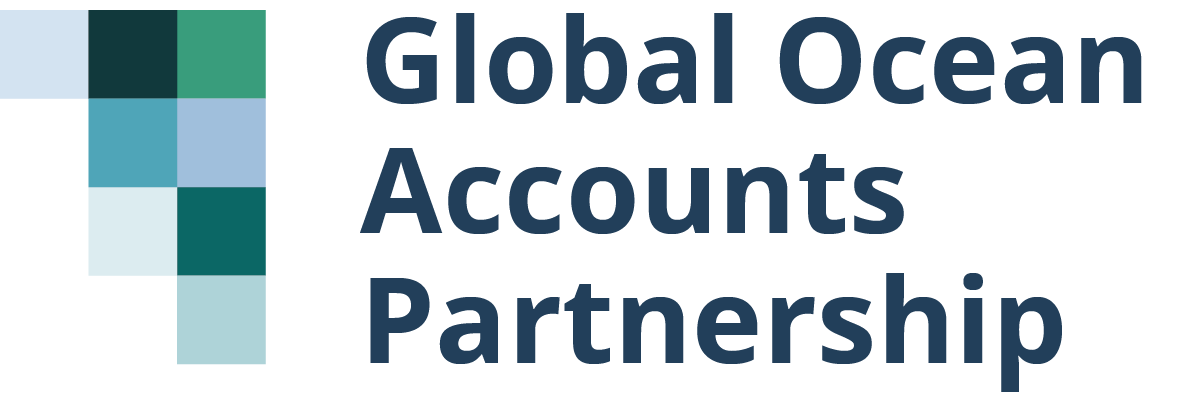The importance of Social Accounts on the pathway towards Ocean Equity

Authors: Dr Phil James and Dr Rebecca Shellock
Ocean Accounts have emerged as a powerful tool for understanding and managing our marine environments and blue economies. By integrating environmental, economic, and social data, they provide a comprehensive picture of the human-ocean relationship. Despite the importance of social data (read more here), the social dimension of the accounts has often been overlooked and are lagging behind other dimensions of the framework.
Integrating social data into an economic and environmental accounting framework provides the ability to track human well-being and understand the flows of services from the environment to societal well-being, as well as the pressures on the environment which will impact human well-being.
Without rapid development of Social Accounting techniques, the use of social data will fall behind the use of environment and economic data that is more readily available. While valuable, we need to go beyond traditional approaches (e.g. use of social statistics), which is often scattered across many different databases, sectors, institutions and specialist expert communities. We need to move towards comprehensive Social Accounting systems that integrate social, cultural, and equity data, alongside economic and environmental data in Ocean Accounting (OA). This will offer richer contextual understanding of populations and communities and enable spatial and temporal comparisons. Hence, practitioners desperately need to develop and implement a framework for Social Accounts to ensure equitable and just decision making.
Here, we discuss the importance of Social Accounts in Ocean Accounting, explore why they are desperately needed and their place in sustainable development.
What is Ocean Equity?
The diligent pursuit of Ocean Equity will help to ensure that the course towards a sustainable ocean is more representative, inclusive and just.
Equity concerns justice and fairness for all people and acknowledges that individuals and groups do not start from the same point and may face different systemic barriers1. Equity recognizes that various communities may require adjustments to address causes of inequality and additional support to overcome these challenges.
Social Accounts as an opportunity
To achieve national developmental priorities and international goals and targets, decision-makers need to understand the complex social, cultural and equity dimensions of ocean use and change and the implications for management. Inadequate consideration of social, cultural and equity factors can lead to policy failures and unintended consequences in marine resource management.
For instance, governments have implemented fishing regulations which aim to achieve conservation objectives but have overlooked traditional practices and the social and cultural values associated with the ocean. These regulations have exacerbated social inequities whilst failing to deliver intended environmental outcomes. This has occurred in the regulation of (i) salmon fisheries in the USA and Canada (e.g. Pacific Salmon Treaty 1985 and Wild Salmon Policy 2005), (ii) marine mammals in the Arctic (e.g. Marine Mammal Protection Act 1972) and (iii) fisheries in New Zealand (e.g. Fisheries Amendment Act 1986).
Social Accounting provides an opportunity to better consider social, cultural and equity factors and drive towards equity in ocean decision-making.
Social Accounting is the process of capturing, analysing, and reporting of data related to the social, cultural and equity dimensions of the human-ocean relationship within an integrated accounting framework2-3..
The resulting output is a Social Account, which has accounting tables and spatial mapping which provide the linkages between social, environmental and economic data4. This tells you what is happening, as well as where it is happening. Social Accounts is central to the Ocean Accounting framework and hence will need to align with the international standard System of National Accounts (SNA), which is used to produce indicators like Gross Domestic Product (GDP), and the System of Environmental Economic Accounting (SEEA).
Why Social Accounts?
Without considering social, cultural, and equity aspects, Ocean Accounts may provide an incomplete or misleading picture, potentially leading to poor decisions with negative social consequences. Failing to incorporate these considerations could result in inaccurate ocean accounting, leading to misguided decision-making with long-term negative effects on the economy and human well-being4.
We identify five ways in which Social Accounts can provide a crucial evidence base for ocean sustainability, leading to more effective and equitable decision-making. Social Accounts:
- Highlight the dependence of communities on the ocean and ensure their voices and experiences can be heard within high level policy and management discussions. Using Social Accounts could reveal issues such as community dependence on marine resources, the protection provided by natural assets to livelihoods, the distribution of benefits and losses of economic activities such as tourism, the social impacts of marine protected areas and governance power balances.
- Establish how the benefits and costs of the use of ocean services (e.g., employment, resource-use, access and ownership) are distributed across different social groups, which can help to identify and address inequalities.
- Provide indicators that help decision-makers track progress towards ocean sustainability, evaluate the social impacts of policies, and make informed choices that consider the well-being of communities.
- Assess the societal consequences of management and governance approaches, as well as the impacts of ocean resource use on communities and stakeholders.
- Social Accounts are a vehicle for the inclusion of Indigenous, Traditional and Local (ITL) Knowledge into the Ocean Accounting framework, ensuring it is on an equal footing with scientific knowledge. By incorporating the perspectives and experiences of local communities, Social Accounts can facilitate the integration of diverse knowledge systems into decision-making processes.
Driving the Social Accounts agenda in 2025
As the halfway point for the 2030 Agenda and a year filled with events related to the ocean, 2025 is an opportunity this year to ensure Social Accounts gain sufficient attention. Several events are already raising the profile of Social accounts and Social data. For example, during the 10th Our Ocean Conference in South Korea, GOAP Secretariat Director Dr Phil James will be speaking to the importance of Social Accounting and local knowledge in informed decision making. During a side event titled “Counting what matters: Social and economic pathways to an inclusive ocean economy“. In a similar vein, GOAP will be hosting a booth in the Green Zone at the 3rd United Nations Ocean Conference (UNOC 3), which will highlight the importance of including Social Accounts within decision making and provide actionable approaches for countries wishing to implement a Social Account.
Social Accounts are a crucial part of the Ocean Accounts framework, yet the exploration of what a Social Account should comprise of has been limited to date. This is beginning to change. The Global Ocean Accounts Partnership (GOAP) published a brief in 2024 which first explored what might be included in a Social Account and how. Two further exploratory papers on Social Accounts will be published in May 2025 and made available on GOAPs website. However, this pace desperately needs to be increased, with funding and technical support being directed to support the social dimension of the Ocean Accounting framework on an equal footing as the economic and environmental domains.
The development of Social Accounts in Ocean Accounting is an ongoing process, however what is clear is the need to increase momentum and for multiple pilots to close the gap on the other two domains of the accounting framework.
Key elements of the development agenda include:
- Developing a standardised framework: Establishing clear guidelines and methodologies for collecting, analysing, and reporting social data in a consistent and comparable manner. Work will establish how Social Accounts can be integrated within traditional accounting frameworks such as the SNA and SEEA.
- Identifying data sources: Exploring and utilising various data sources, such as surveys, census data, and participatory research, to gather information on social aspects of the human-ocean relationship.
- Developing indicators and accounting tables: Creating meaningful indicators that reflect social well-being, equity, and cultural values related to the ocean.
- Building capacity: Training individuals and institutions in the methods and tools for social accounting in the ocean context.
- Promoting stakeholder engagement: Ensuring the participation of diverse stakeholders, including communities, governments, researchers, and NGOs, in the development and implementation of social accounts. To integrate diverse perspectives.
Concluding remarks
Social Accounts are an integral part of Ocean Accounting, providing a critical link between the environment, the economy, and the well-being of communities. By incorporating social, cultural, and equity considerations, Ocean Accounts can contribute to more informed, equitable, and sustainable ocean management. However, challenges remain in fully integrating social accounts into ocean accounting. Data availability, methodological issues, and the need to integrate diverse perspectives require ongoing attention and innovation.
As the field continues to evolve, Social Accounts will play an increasingly important role in ensuring that the ocean's resources are managed in a way that benefits both people and the planet. By embracing a "Beyond GDP" approach and empowering communities, Social Accounts can help shape a future where the ocean is a source of prosperity, well-being, and equity for all.
The discussion remains live as to what should be included in the accounts and how. For now, it is imperative that the global community commit to developing these accounts alongside the Environmental Accounting tables and momentum is increased across the whole of the accounting community.
Further reading
- Briefing paper on Social Accounts
- Briefing paper Towards Social Accounts_Rethinking How We Understand and Use Social Information
- Report- Ocean Accounts for Sustainable Ocean Plans: Enabling Decision-Makers to Measure Progress
